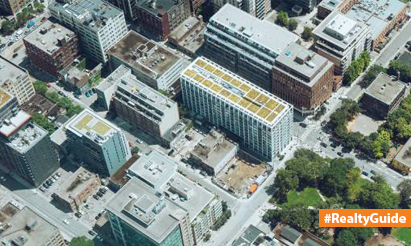What exactly is a location plan (site plan)?
A location plan, often known as a site location plan, is a required document for implementing agencies. This architectural design depicts the projected development in relation to the surrounding regions. It is critical that the site plan be reviewed by planning authorities to guarantee that the development does not breach any regulations specified by the town planning authority.
Location plans, which are often developed on a scale of 1:1250 or 1:2500, are required tools for securing clearance for any renovation. Unlike site plans, these show a larger representation of the surrounding environment as well as their size. Continue reading to learn about the benefits of a location strategy and how to create one:
What exactly is a location strategy?
A location plan gives a more detailed outline of a certain place. The sun is rising above an ordinance inspection map. This architectural drawing provides a more comprehensive picture of the intended development area, as well as the size of adjacent structures such as roads, lanes, or building borders. A location plan, unlike a site plan, does not incorporate adjacent landscapes, parking facilities, roads, or parks, among other things. However, both must be considered while planning any renovation.
Location plan applications
A planning authority may request a location plan in addition to the site plan to establish the neighbouring boundaries. A location plan is a useful tool since it offers a precise summary of the intended strategy in any area. Many authorities request that the development area be drawn in red, whilst property held by the applicant must be designated in blue for easy identification. The location plan is primarily concerned with the layout of site borders, roads, and structures on neighbouring property.
How do you make a location plan?
The fundamental advantage of a location plan is that it aids in the identification of property suggested for redevelopment. As a result, when sketching the same, one must be quite accurate. Any architectural business or equivalent entity can provide a location plan. However, the following prerequisites must be met when doing so:
It must be drawn on a current map of the surrounding area.
- The normal metric scale is 1:1250 or 1:2500. The scale (1:1250) is intended for urban areas and modest houses of 200 x 200m.
- A metric scale of 1:2500 suitable for rural regions and huge properties within the 400 × 400m range
- The plan’s orientation should be evident since the plan’s direction should point north.
Important Takeaways
- A location plan is a document that planning authorities use to substantiate their decisions.
- It gives a thorough summary of the planned plan in any municipality.
- The normal metric scale is 1:1250 or 1:2500.
Disclaimer: The views expressed above are for informational purposes only based on industry reports and related news stories. PropertyPistol does not guarantee the accuracy, completeness, or reliability of the information and shall not be held responsible for any action taken based on the published information.




